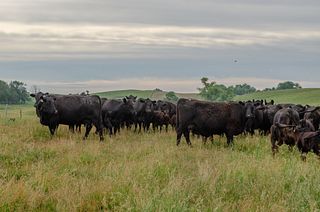
Scott Howard
2011 Winner
Colorado State University
About Scott
What are you doing now? I am working as a Food Scientist for Cargill in Wichita, KS. Specifically, I am a part of our Beef R&D group and lead our efforts related to trim and grind. Daily, my research centers around more efficient utilization of our cattle supply, investigation of novel technologies to improve product quality and consistency, and application of technical knowledge to address the concerns of our customers.
How did the W.D. Farr Scholarship help you achieve your goals? Most importantly, it allowed me to network with beef leaders and gain professional exposure to the current concerns of the industry. These connections have continued to benefit me as I am able to rely on many of them for knowledge and updates that help me better contribute to the beef supply chain. The financial support the Farr scholarship provided allowed me to more intensively apply myself to my graduate studies. This led to accelerated completion of my research which has since become part of the scientific literature surrounding bovine growth and beef quality. The Farr Scholarship allowed me to gain a better scope of the beef industry, increased my own ability to contribute to scientific exploration of this industry, and ultimately become a more valuable contributor to the beef supply chain.
What advice do you have for students to be successful? A commitment to understanding your profession means you should constantly wake up with more questions than answers. Those questions should stem from an intense drive to read and understand all that you can about the industry you are a part of. Never be content with what you think you know, or what is accepted as fact. Above all, no amount of technical knowledge will surpass the importance of the personal and professional relationships in your life.
What do you think was W.D. Farr's most important trait? Work ethic and innovation. These two traits must go together as either one is useless without the other. Mr. Farr’s ability to dream was complemented by a work ethic that allowed him to execute. These are the same traits that are essential in any industry today. If the process of creative destruction is not applied daily, growth stops, efficiency decreases, and value is less likely to be realized. Creative destruction demands both innovation and work ethic to be successful.

